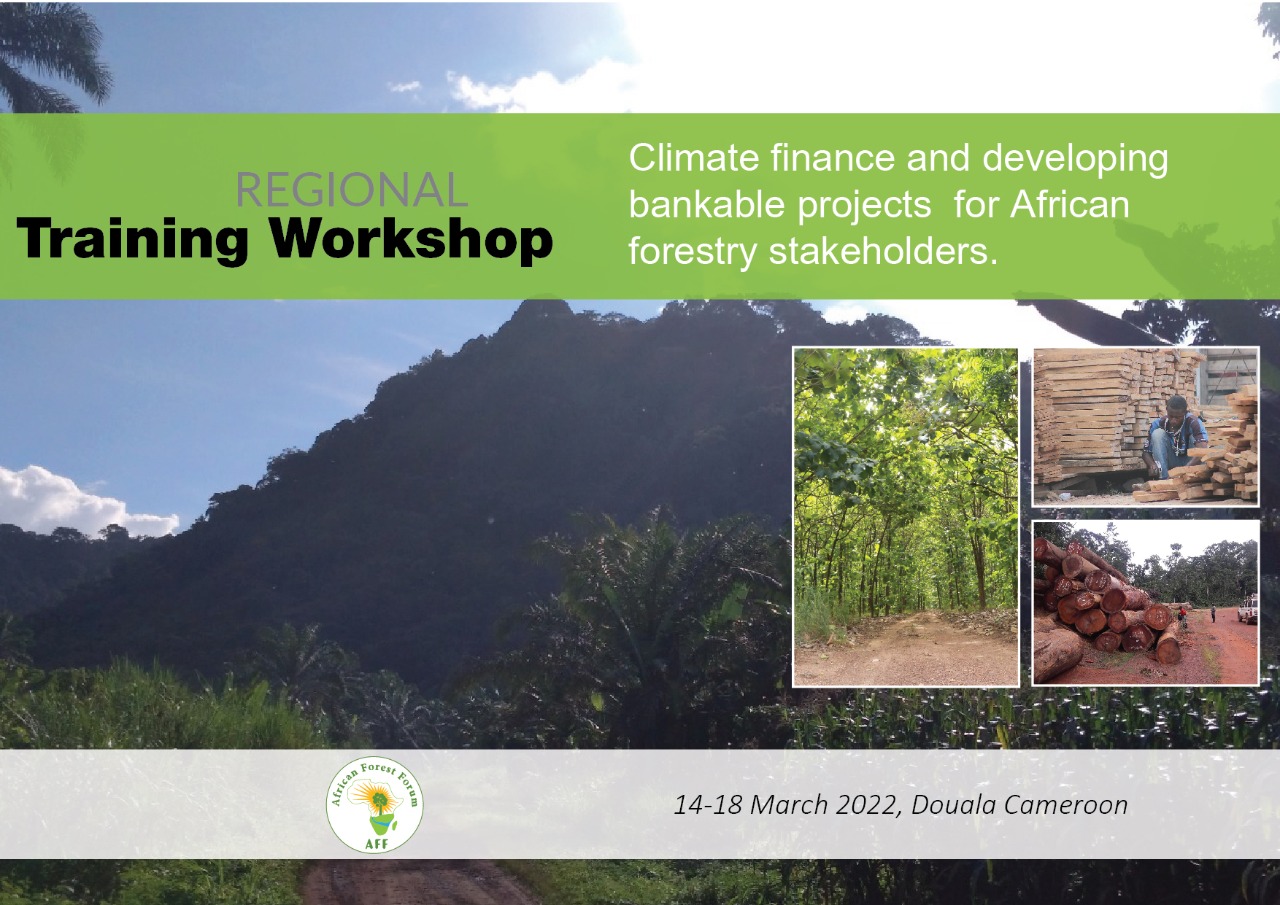A view of the tropical rain forest on mount Cameroon national reserve park. Photo: Atabong Armstrong via Wikimedia Commons
1.BACKGROUND Although setting up / strengthening enabling policy and institutional frameworks and gathering sufficient technical knowledge and capacities are part of the key requirements to achieving global climate goals, assessments of the first Nationally Determined Contributions (NDCs) revealed that lack of financial resources constrained implementation of many planned interventions in African countries. Climate finance mobilization, therefore, represents a crucial step to implement climate action and to achieving the goals. For developing countries in general, and for Africa in particular, tapping into global financial resources dedicated to climate action represents one of the key challenges. Africa falls behind other regions in mobilizing resources for climate change initiatives. Among the constraints that impede efficient and adequate climate finance mobilization by most African countries are insufficient domestic capacity at technical, institutional and financial levels to (i) develop quality project proposals that respond to investment criteria of climate funds, (ii) lay down sound implementation mechanisms and (iii) establish functional reporting systems. Accessing finance from the available global and regional climate funding sources requires countries to satisfy a set of criteria including, the need for the proposals to demonstrate a strong climate rationale, an elaborated paradigm shift, ownership by the country, among other requirements. Also, weak cross-sectoral coordination greatly weakens the ability of African countries to prepare coherent, well-articulated projects and tap into funding opportunities that could enable the continent to address the risks advanced by climate change. The need to provide consistent support to African countries in building their capacity to fully deploy mechanisms to mobilize climate finance successfully and sustainably is ever growing, especially in this context where countries have revised (or are revising) their NDCs to set new and more ambitious targets, updating and implementing their National Adaptation Plans (NAPs) in the short, medium and long term. Of particular interest to actors in the forestry sector, the Global Forest Financing Facilitation Network (GFFFN), known as the financing arm of the United Nations Forum on Forests (UNFF), was established to help unlock and facilitate access to existing and emerging financial mechanisms with the aim to contribute to the achievement of the global forest goals and targets. Since its inception, GFFFN has supported many countries globally to access resources. In Africa, they have supported Cameroon, Guinea, Niger, Nigeria, Uganda, and Zimbabwe, among others. This support has also facilitated training of hundreds of forestry stakeholders on resource mobilization approaches. It is in this context that, AFF in its annual work plan for 2022, plans to organize a regional training workshop on “climate finance and writing bankable projects”, for African forestry stakeholders from governmental and non-governmental organizations. The training is being organized in collaboration with GFFFN, considering their available training materials and experiences. Moreover, this collaboration with GFFFN is expected to create opportunities for synergies and collaboration with their on-going initiatives at continental level including with some regional economic Communities (RECs). 2. OBJECTIVES OF THE TRAINING WORKSHOP The overall objective of the training workshop is to strengthen the capacity of a critical mass of African forestry stakeholders from selected Francophone countries on climate finance and on writing bankable projects. More specifically, the training workshop will focus on: (i) knowledge of available climate funding mechanisms at regional and international levels, addressing aspects of investment / funding criteria, processes, project’s cycles, proposals’ requirements, etc.; (ii) how best to mobilize funds for climate actions at the country / national level (domestic funds) and, (iii) how to write bankable projects on forest and tree-based climate actions.4. EXPECTED OUTPUTS Participants have good knowledge on the following aspects: (i) available climate funding mechanisms/sources at regional and international levels; investment / funding criteria, processes, project’s cycles, proposals’ requirements, etc.; (ii) existing domestic finance that can be mobilized to implement climate actions in the forestry sector; (iii) principles and practices for the development of bankable projects for climate finance. 3.WORKSHOP APPROACH AND DURATION The workshop will be conducted physically in Douala, Cameroon over a duration of 5 days from the 14th to the 18th March 2022. 4.PARTICIPANTS The event is expected to convene about 30 invited participants, from the following eight Francophone countries: Burkina Faso, Cameroon, Central African Republic, Comoros, Côte d’Ivoire, Democratic Republic of Congo, Madagascar and Togo. For each country, participants will be selected from governmental / forest administration and non-governmental organizations (and this includes the private sector). For more information, download the following:

